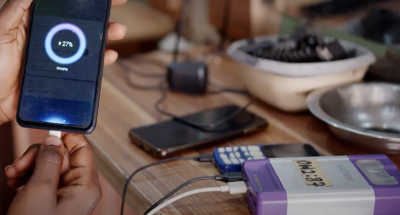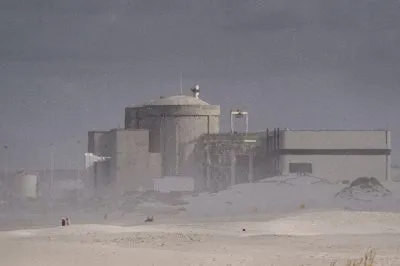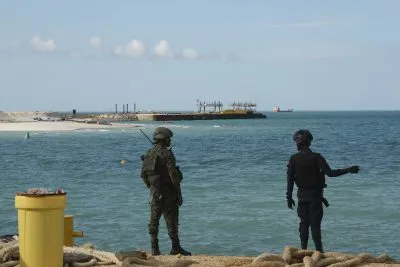Officials from public development banks (PBDs) around the world met in the Ivorian capital from 18 to 20 October for the third Finance in Common Summit (FICS) under the theme “Green and Just transition for a sustainable recovery”.
The two-day annual conference sets the agenda and drafts policy recommendations for decision-makers at the 522 PDBs worldwide based on studies from a community of academics and think-tanks from all continents. It aims to strengthen the partnerships of PDBs in support of common actions aimed at fighting climate change and gearing economies and financial systems towards sustainability.
This year’s theme – and the decision to hold the FICS for the first time in Africa – provided the opportunity for PDBs to highlight the role they can play in fighting climate change ahead of Cop27, which opens on 6 November in Sharm El-Sheikh, Egypt.
PDBs – state-owned financial institutions that support economic development in a country or region – account for $23 trillion of assets and 12% of global investment, boasting financial capabilities that can help achieve the estimated $1.6 trillion–$3.8 trillion required annually to stop global warming rising higher than 1.5 °C above pre-industrial levels.
“If all the PDBs dedicated 20% of their commitments each year to green finance, they could provide more than $500bn of climate finance per year, which is what we need to face climate change,” said Rémy Rioux, president of Finance in Common and CEO of the French Development Agency (AFD), during the opening ceremony, which was attended by the prime minister of Côte d’Ivoire, Patrick Achi.

Surpassing funding expectations
Climate actions are at the heart of the Finance in Common project. At the maiden summit in 2020, all members signed a joint declaration in which they committed to aligning their activities with the objectives of the Paris Agreement, the international treaty that commits most of the world’s governments to fighting climate change.
Since then, the strategies of PDBs have moved towards more investment in mitigation and adaptation projects worldwide. Some of the biggest multilateral development banks (MDBs) – among them the World Bank, the AfDB, the Asian Development Bank, and the European Investment Bank – published a joint report during the FICS intended to track their progress in reaching climate finance targets.
With an $82bn investment in climate finance in 2021, including $51bn for low-and middle-income countries, the banks had “surpassed collective expectations on climate finance”, said the report.
“The seed we planted two years ago is growing very nicely,” said Rioux.
This year’s summit heard that a record $224bn in green finance had been raised in 2021 by the International Development Finance Club (IDFC), a network of 27 national, regional, and bilateral development banks, among them big players such as the China Development Bank, and France’s AFD.
IDFC’s 2021 commitments represent a 21% increase from 2020, while, IDFC members together have raised over $1.2 trillion in green finance since the Paris Agreement was signed in 2015.
Africa’s struggle for financing
However, as far as sub-Saharan Africa is concerned, investment from non-African PDBs is still lagging.
From the MDBs’ record high of $51bn in climate finance for low- and middle-income countries in 2021, only 11% was directed towards low-income countries, of which there are 23 in sub-Saharan Africa.
MDBs from the developed world barely create the financial space to help the continent stave off the devastating impact of climate change.
In 2021, the European Investment Bank (EIB), which co-organised the Abidjan summit with the AfDB, dedicated $8.14bn to projects outside the EU, of which only around a half was for Africa, according to Maria-Shaw Barragan, director of lending in Africa, Caribbean, Pacific, Asia and Latin America at EIB Global.
“If we exclude Northern Africa, maybe 35-40% of our lending was for sub-Saharan Africa,” she says.
What might seem like a significant amount is in reality a paltry piece of the of the $94.89bn total lending in 2021 by the EIB, one of the largest supranational lenders in the world.
However, “we are planning to grow the total lending that we make available for sub-Saharan Africa because we have a particular mandate from the European Union of working with least developed countries,” assures Barragan.
“We have made particular commitments on increasing the portion of adaptation in our total EIB global climate financing, which we particularly want to do in Africa,” she says.
MDBs aren’t the only ones who struggle to finance much-needed adaptation in Africa. Out of the $224bn green finance commitments made by IDFC members, only 1.12% ($2.44bn) was allocated to sub-Saharan African countries. A small share compared to the financial capabilities of these powerful bilateral players.
The overall picture of the IDFC green finance in 2021 indicates that each member invested massively in its respective region, especially in mitigation projects to limit greenhouse gases.
The mitigation of CO2 emissions in the North is an essential component of the fight against global warming. However, the resources needed to ecologically, socially, or economically adapt systems of sub-Saharan Africa to climate change lack financial attention from the wealthiest development banks, leaving these countries heavily dependent on their regional development banks, most particularly the AfDB, which devoted 41% of its total investment portfolio to climate finance on the continent.
Mobilising climate adaptation funding
Among the few announcements made during the FICS were plans by the AfDB to mobilise $25bn for climate adaptation in Africa through the African Adaptation Acceleration Program, a partnership with the Global Centre on Adaptation.
In addition, the African Development Fund (ADF) – the concessional financing institution of the AfDB – has created the “Climate Action Window”, which plans to raise $13bn over time for its member countries.
However, much more is needed to close the climate financing gap, said the AfDB’s Akinwumi Adesina.
“We need to do more to pool our resources and leverage the pools of capital in the private sector for climate finance… We must do all possible to ensure energy transitions, while recognising the specific needs of developing countries,” Akinwumi Adesina, president of the African Development Bank (AfDB) told the representatives of the world’s public development banks (PDBs) meeting in Abidjan, Côte d’Ivoire, on 19 October.
“That’s why together, as Finance in Common, we need to do more to pool our resources and leverage the pools of capital in the private sector for climate finance.”
“Our common humanity is at stake from the 3 Cs: Covid, Climate, and Conflict. The solution to them is the 3 F’s: Finance, Finance, and Finance. Take them three times a day and you’ll be fine,” he said.
The summit concluded with calls by Finance in Common members for their national authorities and respective constituencies to activate a number of levers to help PDBs become enablers of the UN Sustainable Development Goals. These included obtaining a substantial increase in climate adaptation finance at Cop27.
If this call is delivered it will directly benefit the continent by unlocking more investment for adaptation to climate change, to which many of its countries are among the most vulnerable in the world.
Want to continue reading? Subscribe today.
You've read all your free articles for this month! Subscribe now to enjoy full access to our content.
Digital Monthly
£8.00 / month
Receive full unlimited access to our articles, opinions, podcasts and more.
Digital Yearly
£70.00 / year
Our best value offer - save £26 and gain access to all of our digital content for an entire year!

 Sign in with Google
Sign in with Google 



